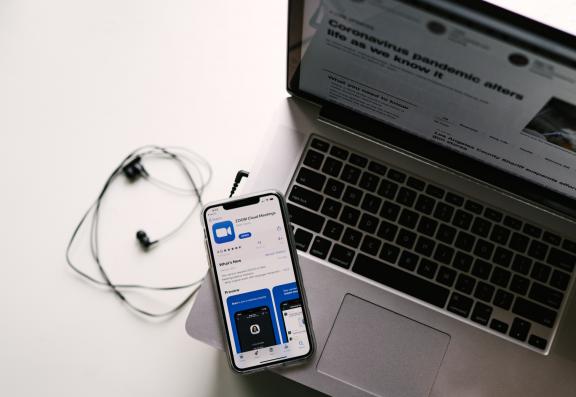Outreach in the time of Corona
We are living in unprecedented times. Covid-19 is impacting not only individuals and families, health systems and global travel, but also the ways in which all companies, governments and organisations operate.
This has certainly been the case for the Independent Redress Mechanism (IRM) of the Green Climate Fund (GCF). Almost overnight, our team went from all being based in Songdo, South Korea, able to engage, have meetings, discuss, debate and plan in the same room, to being spread across four time zones and five countries, with technology acting as our only means of connection. This has come with unique challenges and interesting insights, which you can read more about here.

It has had a particularly significant impact on our ability to conduct outreach, one of our core functions. In order for the IRM to act as an effective avenue for redress, communities and relevant stakeholders need to be aware of our existence. It is within this context that the IRM, together with the Independent Review Mechanism of the African Development Bank, the Inspection Panel of the World Bank and the Compliance Advisor Ombudsman of the International Finance Corporation and the Multilateral Investment Guarantee Agency, planned a workshop with civil society organisations (CSOs) in Southern Africa. The aim of the workshop was to raise awareness about the work we do and how we can be accessed.
Unfortunately, as the Covid-19 virus spread throughout the world and eventually to South Africa, the organising partners made the decision to postpone the workshop until the global situation had changed and it would be safe to come together again. Within the IRM, we explored possible ways in which we could continue to deliver on our mandate, ultimately deciding to host one-on-one video calls with some of the intended CSO participants of the workshop.
Although we were and are extremely disappointed with the postponement of the workshop, into which a large amount of time and resources were invested, we also managed to use the situation to our advantage and gain something which we might otherwise not have. One-on-one calls, facilitated by video technology to encourage a sense of closeness, allowed us to connect with CSOs in a more intimate and informal way. In the six calls conducted, we spoke to nine CSO representatives from around South Africa. During the hour-long discussions, CSOs were able to ask any number of questions they wanted to and we could tailor the presentation depending on the CSO and their knowledge of the GCF. We were able to assist with specific queries by following up with documents and links they requested, and get into the details of the ways in which the IRM is relevant to the work that they do.

While we certainly hope that this has been useful to the participants involved, it has also provided us with direct insight into the kinds of questions, processes and information that CSOs are interested in. Some questions were quite practical, relating to the timelines of the complaints process and the kinds of complaints that the IRM deals with. Others however were more philosophical, regarding how the IRM balances the importance of a climate change project with the potential harms it would cause, and the immediate risks of a project with its long-term benefits. CSOs were particularly interested to learn more about the IRM’s approach to community representation and engagement. Questions included: How does the IRM envisage their relationship with CSOs? How does the IRM engage with communities, is this done directly or only through representatives? How are those representatives chosen? How does the IRM empower communities to make complaints themselves? And lastly, participants raised questions about the outcomes of the IRM’s procedures; what the potential impacts of our findings on a project are, whether our recommendations are binding, what kinds of recommendations are usually given and whether our past cases have been satisfactorily resolved. Apart from these questions which relate directly to the IRM, participants also used the opportunity to find out more about the GCF itself, and how CSOs could become involved in the accreditation and project processes that occur in their country. While not always easy to answer, these questions will prove invaluable in the design of future outreach activities, both virtual and in person.
These kinds of one-on-one calls, however, in no way replace the need for in-person workshops, particularly in parts of the world with limited internet connectivity. While useful, the calls only allowed us to present on our procedures, not on those of the other organising partners; connectivity was often poor, resulting in struggles to see or hear each other; and only a limited number of people and organisations could be reached using this method. We are still hopeful that we will we able to host the workshop later this year (although dates have not yet been determined), to enjoy the benefits of a collaborative, face-to-face workshop. It is in these shared spaces that panel discussions are most effective, networks are formed, and hands-on activities can be conducted to really increase capacity and accessibility.

The IRM will continue to deliver on its mandate of outreach during these difficult times, optimising on the wide range of tools and technologies now available to us. The current context has presented new opportunities for learning and relationship-building. But perhaps even more importantly, it has allowed us to test our resilience, flexibility and ingenuity, as individuals and as a team.
If you would like to set up your own one-on-one call with the IRM to learn more about what we do and how we do it, please feel free to get in touch with us at irm@gcfund.org.